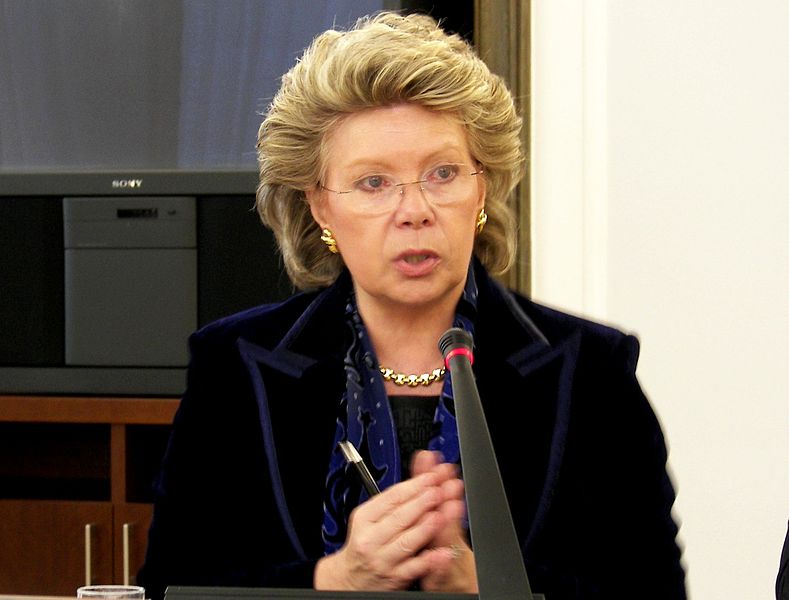No pain, no medals. Taxes down? Conflict and symbiosis.
There’s nothing better than mutual hand-shaking, together with medal awarding. You deserve a gold one, if you are lucky enough to spend 25 years sitting on a Euro-deputy’s chair. If you serve only 5 years (which is not too difficult, as the term in office is, unexpectedly, 5 years) you are entitled to a silver one. The upcoming batch of 6 golden and 500 silver medals will cost 57,000 euros of taxpayers’ money. Their hard work includes such responsibilities as backward approving of additional 11.2 billion euros for the 2013 budget. And it’s really necessary, as the funds flow fast from the European leaky bucket. For instance, the Palestinian autonomy misspent nearly 2 billion euros of the EU aid during the 2008-2012 period, due to corruption and shortcomings in management. Furthermore, Dutch television made a report about an unused Bulgarian stadium worth 3 million euros which has already been demolished.
But there are some signs of effort being made. The Parliament, for the tenth time, has called for abolishing one of the symbols of the EU waste – a monthly trek of the Parliament from Brussels to Strasbourg and back. It costs 200 million euros each month and has no other purpose than to feed the vanity of one member country, which will probably frustrate these efforts again. I’ll let you guess which country it is.
At least the South notices some signs of fresh air. Portuguese government has finally confirmed its intention to trim the corporate tax rate from 25% to 23%, and continue by a gradual reduction to 17-19% by 2016. The decision is really courageous as the budget deficit will reach 5.9% of the GDP rather than the planned 5.5%.
Italians have surprised everyone, too. Not with a worsened budget deficit, which doesn’t surprise anyone, but with tax cuts. Taxes should be reduced by 10.6 billion euros in the following three years. The tax reduction will be split, half for workers and half for companies. It’s not a revolution, since the annual income from these two taxes roughly amounts to a total of 180 billion euros.
But a revolution would be suitable now – for example, in dealing with big inefficient companies with connections to government. The Alitalia airline (bought by entrepreneurs pulled together by Berlusconi in 2008 after the bankruptcy) hasn’t made a profit for more than 10 years, and survives only due to the government bailouts. The latest one is worth 500 million euros of the taxpayers’ money. But the plan faces a strong opposition of another European airline group, which urged the Commission to intervene against it. The Italian banking sector brings bad news as well. The ratio of non-performing loans has reached 10.5%.
Greeks must envy such problems. The ECB declared that it won’t roll over the Greek debt to fill the hole again. Therefore, the country will have to find an extra 2 billion euros next year, and 5 billion in total, to operate normally. “To find“ means to beg Europe for it, because they have rejected more austerity measures. Prime Minister Samaras stormed to Brussels on Tuesday to plead (or ask?) other EU countries for greater solidarity. Meanwhile, they are thinking up more solutions, such as the suggestion to roll over 4.4 billion euros in bonds held by Greek Banks. It might help the state, but it might burden the banking sector. The sector is alive only due to the generosity of the ECB. So, we are talking about the European money again…
On the other side of Europe, British Eurosceptics missed the target. Within the running campaign against EU migrants, they say that Bulgarians, Romanians or Slovaks are driven to Britain by social security benefits. But according to the latest report, the portion of EU migrants among welfare beneficiaries in the UK was only 3% in 2011. But the topic is hot not only in Britain. Martin Schulz, the President of the European Parliament said last week that it will be necessary to redistribute immigrants among the member states.
High hurdles remain for one of the EU’s most important projects. The first pillar of the banking union – single supervisory mechanism assigned to the ECB – has already been completed. However, the second pillar – common resolution fund – proves much more difficult to design. No wonder. Southern countries would like the fund to exist even before the sanitation of their banking systems. The best solution would be to involve the ESM. It would mean that the costs would be foisted on everyone. That’s naturally unacceptable to Germans and some other countries. Recently, they’ve got tough and request bond owners to bear the clean-up expenses before the ESM involvement.
There are a lot of conflicts in Brussels, but there is a symbiosis, too. It exists between the European representatives and non-governmental organizations. Every year, NGOs receive 7.5 billion euros from the EU budget (their income is higher than Estonia’s budget revenue). It is especially bigger organizations (about a third of money is taken by a group of two dozen organizations) that pay this generosity back by defending Brussels’ ideas.
For example, the Commissioner, Vivian Reding, pushes on with her effort to ensure a quota for women on non-executive board seats in public companies. I hope that efforts toward equality will never stop. I suggest an introduction of race, age, religion, education and music preference quotas. At least one metalhead on each board!
If this end isn’t witty enough for you, try having fun looking at this picture. It’s a procedure scheme in case of an excessive deficit of a country. Do you understand now why none of the states have been punished for such a violation?
Have a good rest of the week,
Translated by Michal Kollár



















No comments
Be the first one to leave a comment.